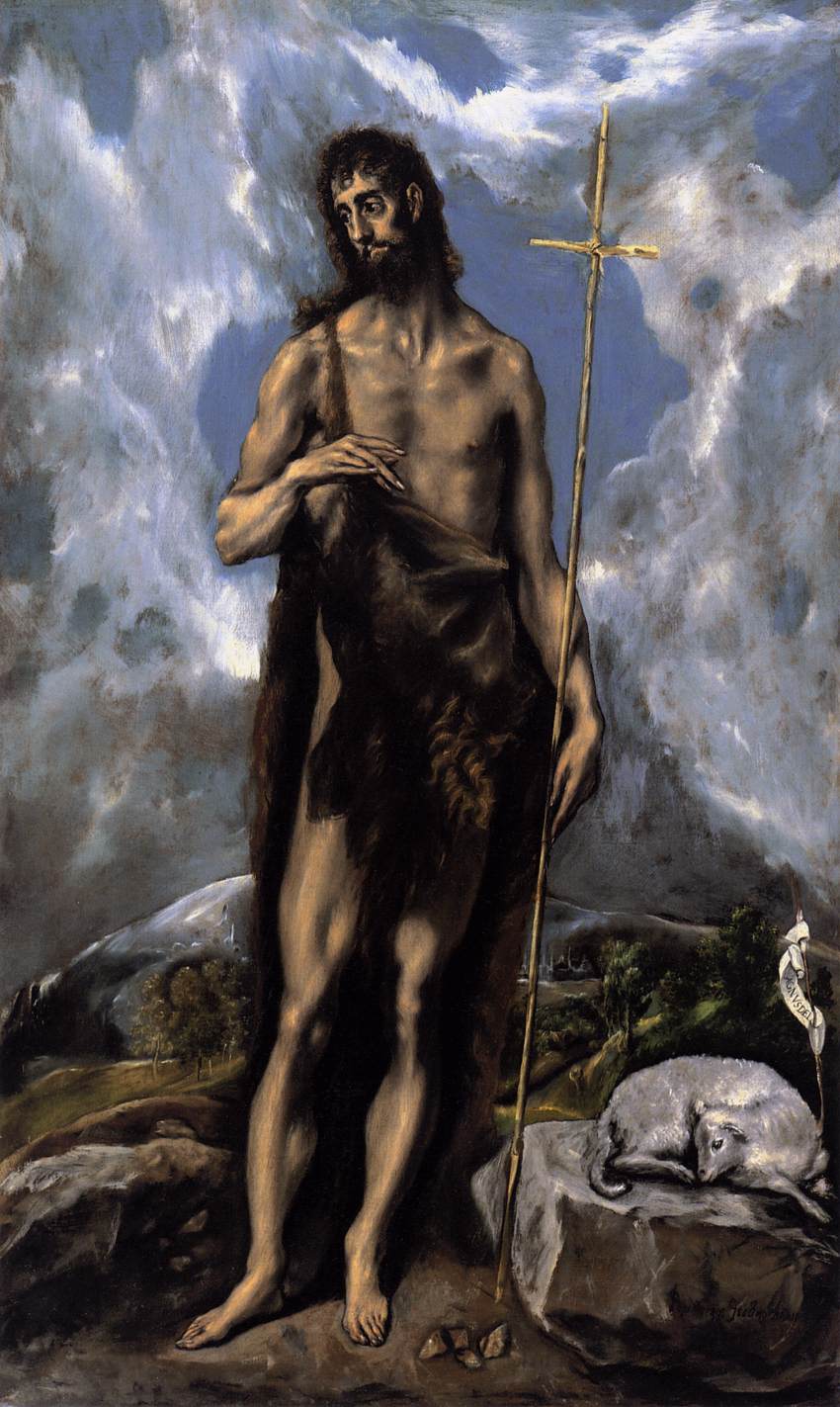Clothing in Mark's Prologue
In all my times reading the prologue of Mark's Gospel (1:2-13), it was not until today that I became curious concerning Mark's reference to clothing, in verses 6,7. The reference to John the Baptist's garb is easy enough to follow, evoking Elijah's apparel in 2 Kings 1:8, as both, John "wore a cloak of camel hair and a belt of leather around his waist...", (ἐνδεδυμένος τρίχας καμήλου καὶ ζώνην δερματίνην περὶ τὴν ὀσφὺν αὐτοῦ...) and Elijah was "a hairy man and a belt of leather girded upon his waist..." (Ἀνὴρ δασὺς καὶ ζώνην δερματίνην περιεζωσμένος τὴν ὀσφὺν αὐτοῦ.). John is presented as the returning Elijah.
In the very next verse (v.7), John makes the statement that "After me comes the one more powerful than I, the straps of whose sandals (τὸν ἱμάντα τῶν ὑποδημάτων αὐτοῦ)I am not worthy to stoop down and untie." This is obviously, a reference to Jesus, in light of the quotation of Malachi 3:1, in 1:3. Matthew's Gospel includes a similar account 3:1-11, but the reference to John's clothing occurs in 3:4, while the reference to sandals does not occur until 3:11. Mark's Gospel has these references in such close proximity one wonders if there is any authorial intentionality here, and if there is, what is Mark driving at as he describes John's clothing along with Jesus' sandles?
What say you?
In the very next verse (v.7), John makes the statement that "After me comes the one more powerful than I, the straps of whose sandals (τὸν ἱμάντα τῶν ὑποδημάτων αὐτοῦ)I am not worthy to stoop down and untie." This is obviously, a reference to Jesus, in light of the quotation of Malachi 3:1, in 1:3. Matthew's Gospel includes a similar account 3:1-11, but the reference to John's clothing occurs in 3:4, while the reference to sandals does not occur until 3:11. Mark's Gospel has these references in such close proximity one wonders if there is any authorial intentionality here, and if there is, what is Mark driving at as he describes John's clothing along with Jesus' sandles?
What say you?


Comments